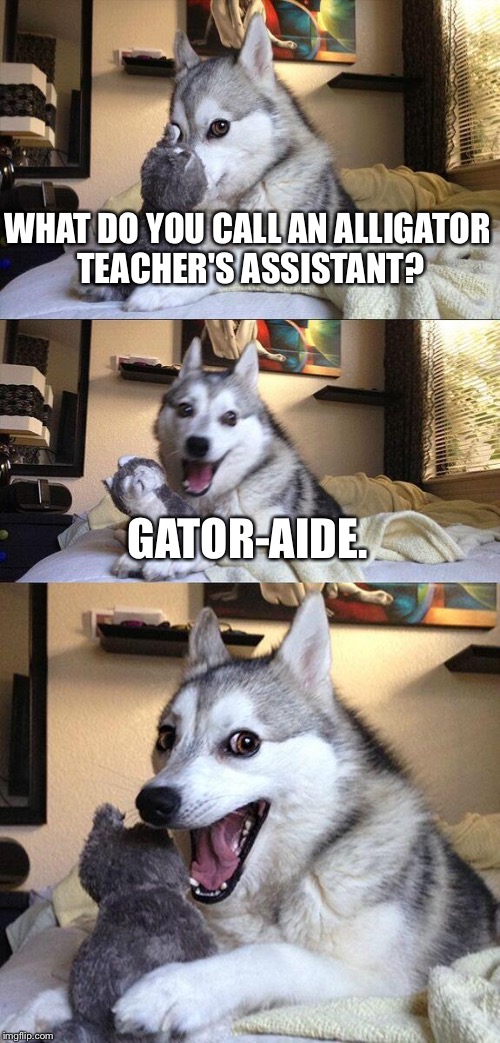Supporting Graduate Students' Academic and Professional Success

You made it! All the applications, stressing over acceptance letters, researching and writing, moving to a new city, state, or even country, and now you’re here! But suddenly, you’ve been thrown into the world of teaching! How do you interact with students who may be around your age or maybe twenty years younger than you? How do you interact with your teachers and become that bridge between the professor and the students, and most of all– how do you manage your time?

[Image Description: A meme of a dog saying, “What do you call an alligator's teachers assistant,” broken by one image without text, and a final box saying “gator-aide,” with a final photo of the dog grinning]
In this blog, we will go over some of the best strategies involved in TA-ing successfully and orienting yourself to your new expectations as a student and a teacher. Creating lesson plans and thoughtful assignments, as well as being a friendly face to students is incredibly manageable using some of these techniques.
[Image Description: Stick figure sitting on a crumpled box, looking pensive with hand on chin, a thought bubble containing a question mark above their head. Reflection is written in doodle font over the figure.]
Reflect: How did you succeed in undergrad, and who helped you reach that goal?
We all succeed in different and unique ways– maybe you were very self-motivated in undergrad or were significantly supported by a community. Maybe your professors were your mentors or a coach or advisor; regardless of the differences, you know what helped you succeed in your previous education. Make sure to draw on those experiences of success and create opportunities for your students to experience the same! You are ultimately more accessible than the professor and can be a great resource for your students.
Prepare: You are now a developing expert! But don’t underestimate just how well you must know the content to teach it.
Your content is likely very familiar; you may have studied it directly! However, teaching content is very different than understanding. Make sure to read through materials when developing lesson plans, review your material for 10-15 minutes before your discussion sections, and be able to synthesize precisely what you want the outcomes of your discussion section to be.
Present: Your students are ready to be prepared for what to expect for the quarter, give them some strong guidelines!
Students should be presented with expectations as early as possible, along with grading rubrics, attendance policies, and any syllabus policies and changes to the syllabus. Of course, not all changes can be foreseen, so mention that your syllabus is subject to change at your and the professor's discretion. Also, try to offer physical syllabus’ for students to look at and offer extra credit or a syllabus quiz to ensure students carefully review your syllabus.

[Image Description: Seven students are sat focusing on the front of a classroom, the room is in a brown hue, a girl sits in the front in a yellow sweater, a man with a beard, light complexion, black hair, sits next to her wearing a gray sweatshirt. The man sitting next to him wears a light grey sweatshirt, has brown skin, and a beard with dark brown curly hair.]
Engage: You care about your students– try to use that to get them to care about the class.
Learning is the goal. And the best way to learn is through creating connections. Send out Google forms that ask personal questions of your students, do regular check-ins about the material, and always offer your office hours as extra time for study. Often, an approachable TA is what students need to excel and learn in a classroom setting.
In conclusion, these are some tips on managing your time and being a teaching assistant who holds your students accountable, offers valuable tools and techniques for learning, and makes the best of your time with your students. Continue talking with the professor and students; new techniques will often emerge.
